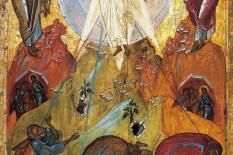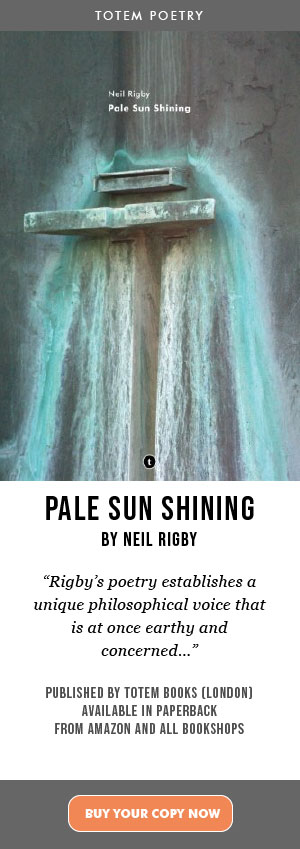Ishmael Annobil's Easter poem for Jesus: "We may never know who decided to kill him / On that barren hill with the crushing name, Golgotha— / It howls in us, when we remember him—; / Or if, with the revelatory supper behind him, feet washed in turns, / And the enemy within poetically outed by his rapier reckoning, / He knew who awaited his coronation with purple irony; / (but we know there were dogs on the street corners, / whimpering and pre-mourning)"
Poetry and Prose

Deepsha Rath's poetry is founded on a mythic stone, though exploring contemporary realities. The trials of womanhood are elevated to a defiant letting-up; amorous longings lead to surprising organic meagre, and old age unnerves: "...She knew how to live the poetry of a barren field / The prayers which were invoked in futile hours / She could dwell under the shades of the hemlock shrub / She breathes the past and sings the future / Her soul is lost to requiem poetry / She has a dark destiny / As dark as her washed out kohl..."
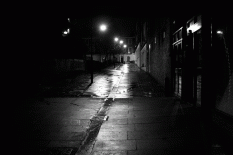
Third in a series of Bibhu Padhi and Minakshi Padhi's series of translations of Oriya poems. Sangram Jena's poems are shrewdly enlightening and forceful, yet almost sacramental in their unravelling of living concepts, processes and time: "The morning comes with /
the crow’s first call, / in light, the smoke / from the oven, / the foothills, / the noise, the mantric chants..."

Second in a series of Bibhu Padhi and Minakshi Padhi's series of translations of Oriya poems. Saroj Bal's poems represent a contemporary Oriya poet's reckoning of the world. They are poignant and strong: "...The mind and the brain / are controlled by the words; / their mischief is so much that / there is a fear that / love’s soft petals are in danger of / being disheveled. / Where else is land?..."
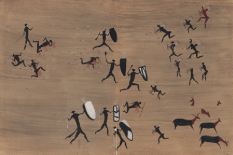
First in a series of Bibhu Padhi and Minakshi Padhi's series of translations of Oriya poems. Here he manages to retain essential vigour and power of Sucheta Mishra's work as well as her exquisite imagery and angst: "We are having our meal / after bathing in blood, / we are enjoying / after bathing in blood. / We visit the temples / after bathing in blood. / now we stay with the knives..."

Shanta Acharya, London based Indian poet, scholar and poetry organiser, presents five poems, variously exploring lost love, nostalgia, and our descent into inhumanity, while commandeering locale and artifact for smart retrospection and wande: "...Scary, strange, inscrutable / things happened mostly to other people. / Our lives were safe and predictable – / an elegant staircase of days rising / heavenwards, unfolding an array / of possibilities, our lives commemorating / life’s immense artistry and we like sunflowers / worship our days passing effortlessly –"

Gopikrishnan Kottoor is a magical poet. These five poems represent the essence of the poetic craft; deft, understated yet conjuring big landscapes, where private agonies as well as sensual dreams become universal: "Forsaken, this little of me left / Has now come this distance. / It would have been easier without her name, / Without a dream of her spreading like fame, / Playing like flame. Without her among your notebooks, / On the tip of your pen and in every cube of sugar..."

Dilip Mohapatra, Poet, Indian Navy veteran, and mentor, explores God and nature, even the denuding of the moon. These new poems benefit from his acute facility for allegory, sinewy rhethoric, and aesthetics: "...Our fertile attacks and counter attacks / multiply exponentially / and we trace on the mat / hyperbolic paraboloids./ We had forgotten that we were not / meant to be in the ring / and life breeds life while / death gives birth to new deaths..."
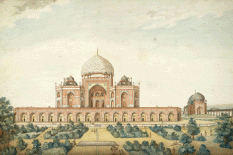
Award-winning Indian poet-diplomat, Abhay K., presents here a five-poem tour of Old Delhi's ancient eddifices: their histories of conquest, hedonism, even piety, contrasting sharply with their echoey decay in a modern, near-iconoclastic era: "I betrayed / a rushing emperor / to his evening prayers / in a chilly January winter / he came tumbling down / the stairs / and breathed his last."
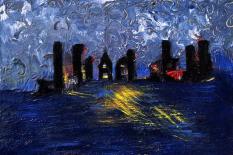
Bibhu Padhi, eminent Indian poet, champion of contemporary Oriya verse, and Chiaroscuro Magazine's Asia Editor for Poetry and Prose, presents five new poems, characterised by a masterly soft touch that betrays profound emotion and longing: " It always seems as if my voice / is too low for the seasons, / their arrivals, departures. / They will not come, / will not go..."

